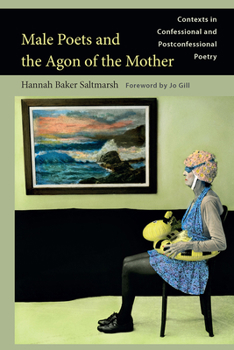Male Poets and the Agon of the Mother: Contexts in Confessional and Postconfessional Poetry
Select Format
Select Condition 
Book Overview
A thoughtful exploration of male poets' contributions to the literature of motherhood
In the late 1950s the notion of a "mother poem" emerged during a confessional literary movement that freed poets to use personal, psychosexual material about intimate topics such as parents, childhood, failed marriages, children, infidelity, and mental illness. In Male Poets and the Agon of the Mother, Hannah Baker Saltmarsh argues that male poets have contributed to what we think of as the literature of motherhood--that confessional and postconfessional modes have been formative in the way male poets have grappled with the stories of their mothers and how those stories reflect on the writers and their artistic identities.
Through careful readings of formative elegies and homages written by male poets of this time, Saltmarsh explores how they engaged with femininity and feminine voices in the 1950s and 60s and sheds light on the inheritance of confessional motifs of gender and language as demonstrated by postconfessional writers responding to the rich subject matter of motherhood within the contexts of history, myth, and literature.
A foreword is provided by Jo Gill, professor of twentieth-century and American literature in the Department of English and associate dean for education at the University of Exeter.





